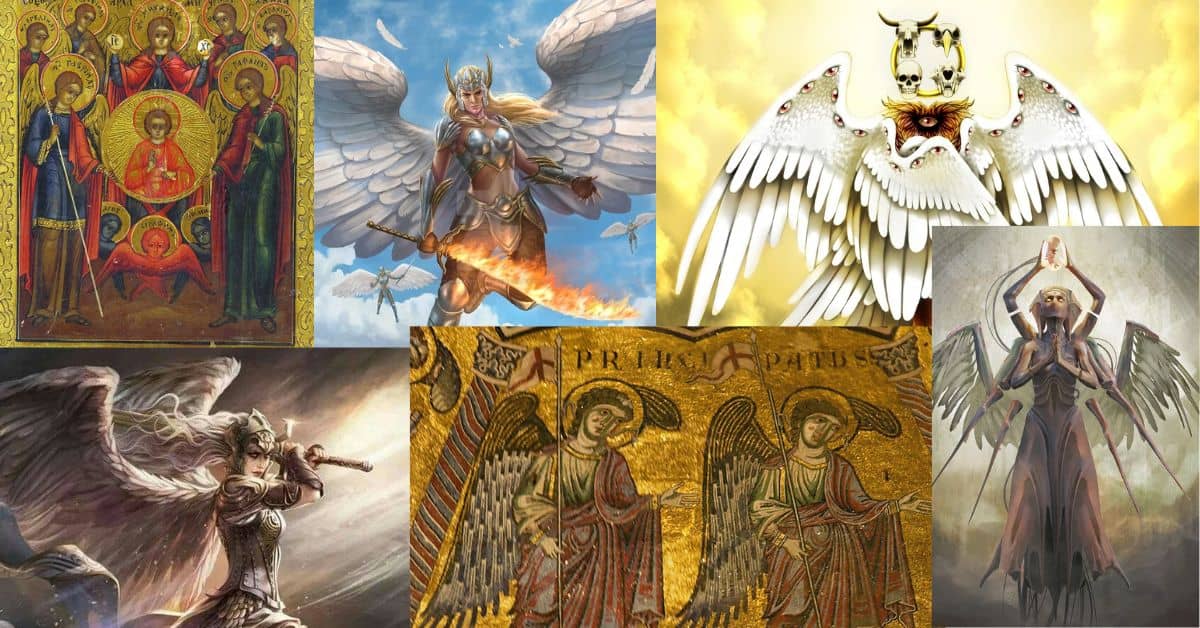Exploring The Celestial Realm: What Are The Different Types Of Angels In The Bible?
Angels have always been a source of fascination in both religious texts and popular culture. These celestial beings are depicted in various forms, embodying different roles and functions as messengers and servants of God. Throughout the Bible, angels appear at significant moments, offering guidance, protection, and delivering divine messages. Understanding the different types of angels in the Bible can enhance our appreciation of these spiritual entities and their purpose in the divine hierarchy.
In this article, we will delve into the various classifications of angels as described in the Scriptures. From seraphim to archangels, each type possesses unique characteristics and responsibilities. This exploration not only sheds light on the nature of angels but also reflects on their relevance in our spiritual lives. Are these beings merely figments of imagination, or do they play an active role in the world today? Let’s uncover the different types of angels in the Bible and their significance.
As we embark on this journey, we will address common questions about angels, their origins, and their roles in biblical narratives. By the end of this article, you will have a clearer understanding of what angels represent in the Bible and the diverse forms they take. Join us as we unveil the mystery surrounding these heavenly figures and discover the profound messages they carry.
- The Monarch Club
- Jensen Danneel Ackles
- Luke Combs Brother Died
- Design Star David
- Who Was Jimmy Carter S Vice President
What Are Angels in the Bible?
Angels in the Bible are spiritual beings created by God to serve Him and carry out His will. They often appear as messengers, delivering important messages to humans, guiding them, or protecting them from harm. In Hebrew, the word for angel is "malakh," which means messenger, while in Greek, it's "angelos," which has a similar meaning.
What Are the Different Types of Angels in the Bible?
The Bible describes several types of angels, each serving distinct purposes. Here are some of the most notable types:
- Seraphim: These are fiery beings that surround God's throne, praising Him continually.
- Cherubim: Often depicted as guardians, cherubim are known for their wisdom and strength.
- Archangels: High-ranking angels that lead other angels and deliver important messages from God.
- Guardian Angels: Assigned to protect and guide individuals throughout their lives.
- Angels of the Lord: These appear throughout the Bible to deliver God's messages directly.
What Are Seraphim and Their Role?
Seraphim are among the highest order of angels mentioned in the Bible, primarily in the book of Isaiah. Described as having six wings, they are known for their fiery appearance and their role in worshiping God. They proclaim His holiness and glory, emphasizing the importance of reverence in the presence of the Almighty.
- James Earl Of Wessex 2023
- Vitar For
- The Jeffersons Cast Dead Or Alive
- Movie Splash Actress
- Anonymous Celebrity Lawsuit
What Is the Significance of Cherubim?
Cherubim are often depicted as guardians of sacred spaces, such as the Garden of Eden and the Ark of the Covenant. They are described in various parts of the Bible, including Genesis and Exodus. Their presence signifies the holiness of God and the need for protection over divine secrets and treasures.
Who Are the Archangels in the Bible?
Archangels hold a prominent position in the heavenly hierarchy. They are known for their leadership qualities and are often depicted as warriors in spiritual battles. The Bible mentions Michael and Gabriel as two of the most well-known archangels.
What Is the Role of Michael the Archangel?
Michael is portrayed as a protector of Israel and a leader in spiritual warfare. In the book of Daniel and Revelation, he is depicted as a powerful figure who fights against evil forces. His name means "Who is like God?" and he serves as a reminder of God's ultimate authority.
What Is the Role of Gabriel the Archangel?
Gabriel is known primarily as a messenger angel. He appears in both the Old and New Testaments, delivering significant messages to figures such as Daniel and Mary. His name means "God is my strength," and he plays a crucial role in announcing the birth of Jesus Christ.
What Are Guardian Angels and Their Purpose?
Many people believe in the concept of guardian angels, which are assigned to individuals to offer protection and guidance throughout their lives. While the Bible does not explicitly name guardian angels, passages such as Psalm 91:11 imply their existence. These angels provide comfort in times of trouble and help individuals navigate life's challenges.
How Do Angels Communicate with Humans?
Angels communicate with humans in various ways, often through dreams, visions, or direct appearances. In the Bible, angels have appeared in human form to deliver messages or provide guidance. They can also influence thoughts and emotions, helping individuals discern the right path in life.
What Are Angels of the Lord and Their Role in the Bible?
Angels of the Lord are special messengers sent by God to convey important messages or perform specific tasks. They are often depicted as powerful beings who execute God's will with authority. Examples include the angel who visited Abraham to announce the birth of Isaac and the angel who appeared to the shepherds at Jesus' birth.
How Can We Connect with Angels in Our Lives?
Many people seek to connect with angels in their daily lives, believing that they can provide guidance and support. Here are some ways to foster a connection:
- Prayer: Engage in heartfelt prayers, asking for the presence and guidance of angels.
- Meditation: Create a calm space for meditation, inviting angelic energy into your life.
- Gratitude: Express gratitude for the protection and guidance you believe angels provide.
- Awareness: Stay open to signs and messages that may be sent by angels in your daily life.
What Are the Different Types of Angels in the Bible and Their Representation?
In summary, the different types of angels in the Bible serve various functions within the divine order. They are depicted as powerful beings who protect, guide, and communicate God's messages to humanity. Understanding these classifications helps us appreciate the spiritual realm and the roles these celestial messengers play in our lives.
Angels, whether they are seraphim, cherubim, archangels, or guardian angels, offer a glimpse into the divine nature of God and His desire to be involved in our lives. By recognizing their presence and purpose, we can cultivate a deeper connection with the spiritual world and embrace the messages they bring.
Article Recommendations
- Nadal V Kyrgios
- Where Do The Atlantic And Pacific Oceans Meet
- Mark Harmon Actor Biography
- Sign For June 24
- Iconic 1970s



Detail Author:
- Name : Andreane Bergstrom
- Username : terry.isobel
- Email : karley09@kuphal.org
- Birthdate : 2006-08-05
- Address : 5127 McDermott Pine Goldnershire, MT 50632-6244
- Phone : (508) 275-4117
- Company : Champlin-Medhurst
- Job : Machinist
- Bio : Commodi ducimus necessitatibus reprehenderit incidunt saepe. Dolorem ea ratione facilis distinctio ducimus sit et et. Alias quas nemo inventore sunt. Fuga aut non ut non.
Socials
twitter:
- url : https://twitter.com/torphy2016
- username : torphy2016
- bio : Mollitia repellendus cumque doloribus veritatis et et error. Enim similique autem ex debitis. Aut error asperiores recusandae.
- followers : 852
- following : 835
linkedin:
- url : https://linkedin.com/in/edgar.torphy
- username : edgar.torphy
- bio : Fugit ratione molestias qui.
- followers : 3820
- following : 253
instagram:
- url : https://instagram.com/edgar.torphy
- username : edgar.torphy
- bio : Ut qui sint repellat atque modi perspiciatis. Non qui quam molestiae non quaerat sint qui quae.
- followers : 3030
- following : 1185